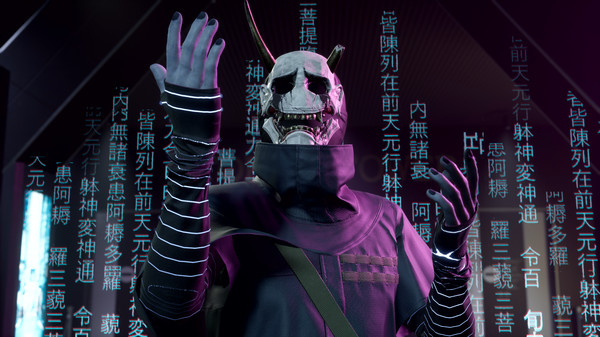
Ghostwire: Tokyo got its big Spider's Thread update last Wednesday, adding a new roguelite game mode, extra side missions, more enemies, more skills, and some tweaks and upgrades to the game's photo mode. Oh, and it also inexplicably added widely-despised Denuvo anti-tamper DRM over a year after the game's initial release.
The addition of Denuvo to the game was first spotted by players keeping an eye on Ghostwire: Tokyo's SteamDB page, who theorised that a 263MiB addition to the game's executable—quadrupling its size—was actually Denuvo. It's since been confirmed in tests by DSOGaming.
We're yet to see if Denuvo's Ghostwire implementation causes the kind of performance drops and frame stutters the tech is loathed for, but it's a pretty baffling move even if the integration ends up being miraculously seamless. Denuvo-less versions of the game are already widely available on the internet's myriad piracy hotspots (and it's not as though it won't inevitably be cracked anyway).
There's speculation that the change was prompted by the game's recent addition to Game Pass, which will put the game in the public eye all over again, but I can't really parse the logic in that myself. Like I said before, Denuvo-free versions of the game are already out there, and I don't see why releasing on Game Pass would necessitate a level of protection that the game's actual launch wouldn't.
DSOGaming suggests that the change could be paving the way for some kind of expansion, meaning Denuvo is being added to protect that rather than the base game itself, which makes more sense. But until we get word from Bethesda or Tango Gameworks about the game's future, this is all just speculation.
I've reached out to Bethesda to ask what prompted the addition of Denuvo to Ghostwire: Tokyo, and I'll update this piece if I hear back.
Usually stories like this are the other way around: A game will release with Denuvo DRM, prompting player gripes, but the tech will often get removed as the game's sales taper off and piracy becomes less of a threat to the publisher's bottom line. That's exactly what happened this week with Resident Evil Village, which quietly yoinked the DRM software almost two years after the game's first launch. Meanwhile, pirates managed to crack RE Village's Denuvo protection around a month after the game came out.







